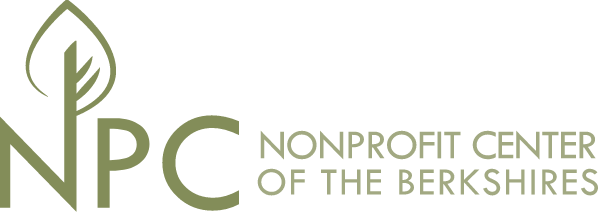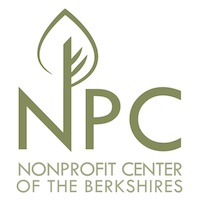28 Apr Local legislators advise Berkshire nonprofits to band together to weather virus storm
Posted at 15:37h
in News
Berkshire Legislators: ‘Back to Normal’ Not Good Enough
 WILLIAMSTOWN, Mass. — Life looks very different today than it did just more than a month ago and it should look very different when the COVID-19 crisis ends, the Berkshire County legislative delegation agreed last week.
WILLIAMSTOWN, Mass. — Life looks very different today than it did just more than a month ago and it should look very different when the COVID-19 crisis ends, the Berkshire County legislative delegation agreed last week.
All four county representatives and state Sen. Adam Hinds participated in a virtual town hall hosted by the Nonprofit Center of the Berkshires.
“We keep saying the term, ‘We want to get back to normal,'” state Rep. Tricia Farley-Bouvier of Pittsfield, said. “I think everybody here agrees, especially when we’re talking about this topic, that we don’t want to get back to normal. What is ‘normal?’ We need to really think about this in a different way.
“I think one of the most obvious ways, the part that everybody gets is what we’re referring to now as ‘essential workers.’ An essential worker is a [certified nursing assistant], who makes $12.50 an hour. An essential worker is someone who is stocking grocery stores and checking people out. But they are some of the most low-paid workers.”
The public health crisis has exacerbated and exposed disparities in the American economy, Hinds said.
“It’s clear that vulnerable populations were hit hardest,” he said. “They were hit first. And we even see gaps in what we’re trying to do. Undocumented workers are not getting support right now, and they’re still playing a big part in the economy, just as one example.”
Hinds said he raised the issue of income disparity last week with a Senate revenue working group, a body that includes representatives of chambers of commerce and organized labor. He asked that group to think about how the commonwealth could change its revenue generation strategies.
“We talked about expanding the earned income tax credit, we talked about expanding the child tax credit, we talked about shifting to more sales tax from digital goods,” Hinds said. “Honestly, the general consensus was it’s too soon. We don’t know where we’re headed. So we put a pause on the conversation.
“But there is an appetite to take a step back when you have a crisis like this to say, ‘Is our system fair? Is this system the one we would choose if we were to create it right now?’ And I think, quite honestly, the answer is no.”
The state Rep. Paul Mark of Peru said the pandemic has shown that even in Massachusetts, which has one of the better social safety nets in the United States, too many people fall through the cracks.
“I can’t imagine if this is hitting a place like Oklahoma, how things are going there,” Mark said. “But I think it’s exposed that far too many people were living paycheck to paycheck. Far too many people were living on the edge of disaster. When a disaster hit, they wouldn’t have the resources at their disposal to be able to get ahead.
“And I think it’s really important that, in areas like health care, areas like paid sick leave, areas like making sure workers have proper protection, making sure workers have the ability to work with business to try to ensure wages, the ability for business to be able to survive and thrive without having to just barely eke by … And for non-profits, because I know that’s the focus of this call. How many non-profits out there are inadequately funded at all times?”
Mark said there are steps legislators can take to correct the injustices in the system after the state of emergency has passed that will ensure that Massachusetts residents are better equipped to deal with the next emergency.
“Remember that this happened, remember that they weren’t happy with it happening and how they feel during this and then advocating for appropriate measures moving forward that are hopefully going to change things,” Mark said. “I’ve filed bills about expanding unemployment. I’ve filed bills about helping access health care. We’ve been filing bills about a lot of different crisis topics.
 “But imagining that people can get back to normal in a month or two, we can’t forget how we got there, how easy it was for the rug to be pulled out underneath us. And people need to act and organize accordingly.”
“But imagining that people can get back to normal in a month or two, we can’t forget how we got there, how easy it was for the rug to be pulled out underneath us. And people need to act and organize accordingly.”
Mark said his fellow members of the Berkshire delegation have been advocates for that kind of systemic change long before the current crisis but that those voices have to “get louder.”
State Reps. John Barrett III of North Adams, and William “Smitty” Pignatelli of Lee, mentioned other kinds of systemic change that they would like to see become part of the “new normal.”
Barrett mentioned a change he would like to see at the federal level and called on U.S. Rep. Richard Neal, the chairman of the House Ways and Means Committee, to help make it happen.
“The first thing [President] Trump talked about is he wants to help businesses, and the first thing he said was, ‘We’ve got to … allow the [business] deduction so we can help restaurants,’ ” Barrett said. “Big business again is the first thing on his mind. How about making [deductions] available so people can donate as generously as they used to giving to non-profits? … I think we’re going to see changes in our tax system that are going to allow that to happen.”
Pignatelli, calling himself an optimist, said he hopes the current crisis will yield some positives, like a renewed focus on telemedicine and distance learning — if the infrastructure can be built up to support those opportunities in areas of the commonwealth that are underserved by broadband communications.
The South County representative went on to say the COVID-19 crisis has exposed another kind of systemic change that is needed.
“I think this whole process has exposed that in this country, we don’t make anything anymore,” Pignatelli said. “We’ve seen the prices for surgical masks go from 15 cents to 78 cents for the hospital, and they’re ordering hundreds of thousands at a time. There are organizations selling them for $5, $6, $7 for a cloth mask.
“I think we have an opportunity here. I think Boyd Technology down in Lee has done a good job stepping up. I think there’s a great opportunity, if we can compete with the labor costs, to start bringing some of these manufacturing opportunities back home.
“We should try to retrofit some of these manufacturers, like Boyd Technology, to be making these kinds of products that would be sold locally.”
Originally published on iBerkshires.com on Tuesday, April 21, 2020.



